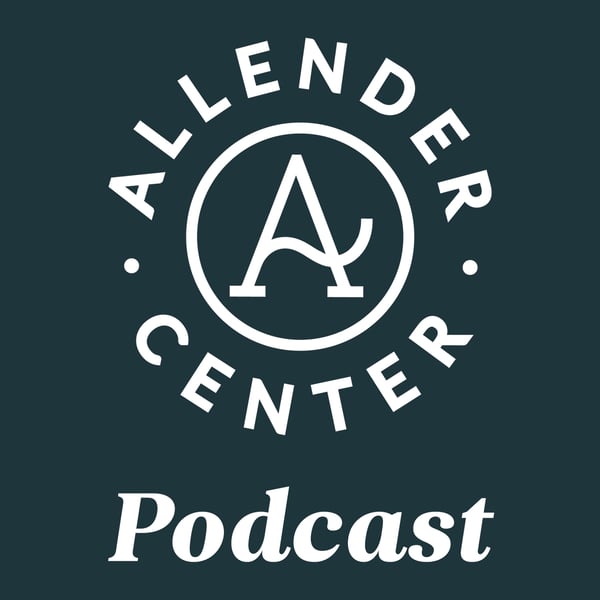The Culture of Spiritual Abuse
The Allender Center Podcast
The Allender Center
4.6 • 628 Ratings
🗓️ 22 November 2024
⏱️ 38 minutes
🧾️ Download transcript
Summary
When confronting spiritual abuse, it can feel more straightforward to focus on a specific person or leader who may have caused harm.
But it’s also important to address the systems and cultural contexts that, in their most obvious forms, promote abuse—and in their more subtle forms, allow it to happen or refuse to confront it.
In this episode, Dan and Rachael dive into the painful realities of spiritual abuse and the systems that uphold it.
They explore how cultural powers—such as patriarchy, white supremacy, capitalism, and purity culture—often intertwine with Christian theology, creating harmful environments that distort our understanding of God and faith. And yet, even in the face of this, there is a call to confront our complicity in these systems with grace and humility.
We hope this conversation is an invitation to wrestle with and address how we've been shaped by harmful cultures and systems and how we may have participated in them – and ultimately, to consider how we can step into a more loving, just, and merciful understanding of God and community.
===
We invite you to explore the brand-new Spiritual Abuse & Healing Online Course from the Allender Center.
This 6-lesson course, complete with reflective practices and deep dive panel discussions, helps you engage your body, mind, and spirit as you unpack the harm caused by spiritual abuse.
Whether you’re just beginning to wake up to this reality or have been on a healing journey for years, this course provides a safe and welcoming space to deepen your understanding and work towards healing.
Learn more and enroll today at:
theallendercenter.org/online-courses
Transcript
Click on a timestamp to play from that location
| 0:00.0 | Thank you for listening to the Allender Center podcast. |
| 0:06.7 | I'm Dr. Dan Allender. |
| 0:08.7 | And I'm Rachel Clinton-Centen. |
| 0:10.5 | We're fiercely committed to providing hope and healing to a fragmented world. |
| 0:14.7 | And restoration for the heart. |
| 0:17.2 | Thank you for joining us. |
| 0:18.5 | Let's get this conversation started. |
| 0:31.5 | Thank you for joining us. Let's get this conversation started. All right, Rachel, I want to start with a premise and have you react to it. |
| 0:37.1 | Here's the premise. |
| 0:38.5 | I hope our audience knows that a lot of this isn't really planned. |
| 0:43.2 | It's actually intended, but not worked out beforehand. |
| 0:47.8 | So thank you for being willing to work on this. |
| 0:52.7 | Here we go. |
| 0:54.1 | Individuals abuse, obviously. |
| 0:56.9 | But individuals abuse and one of the prime reasons they're able to abuse and to sustain the abuse, |
| 1:07.3 | and often without consequence, is because there are systems that are operating to enable them |
| 1:15.3 | to be able to do so. So even though we have spoken the last time, particularly about developmental |
| 1:21.9 | wounds, how that plays out in reenactment, I'm not going to go back through all of what we attempted to cover, |
| 1:28.2 | but to say, if we don't deal with the larger system, |
| 1:31.8 | that often is in and of itself abusive, |
| 1:35.2 | but even more so, that system sustains, |
| 1:41.9 | authorizes, and often covers over the abuse that has been done. |
... |
Please login to see the full transcript.
Disclaimer: The podcast and artwork embedded on this page are from The Allender Center, and are the property of its owner and not affiliated with or endorsed by Tapesearch.
Generated transcripts are the property of The Allender Center and are distributed freely under the Fair Use doctrine. Transcripts generated by Tapesearch are not guaranteed to be accurate.
Copyright © Tapesearch 2025.

